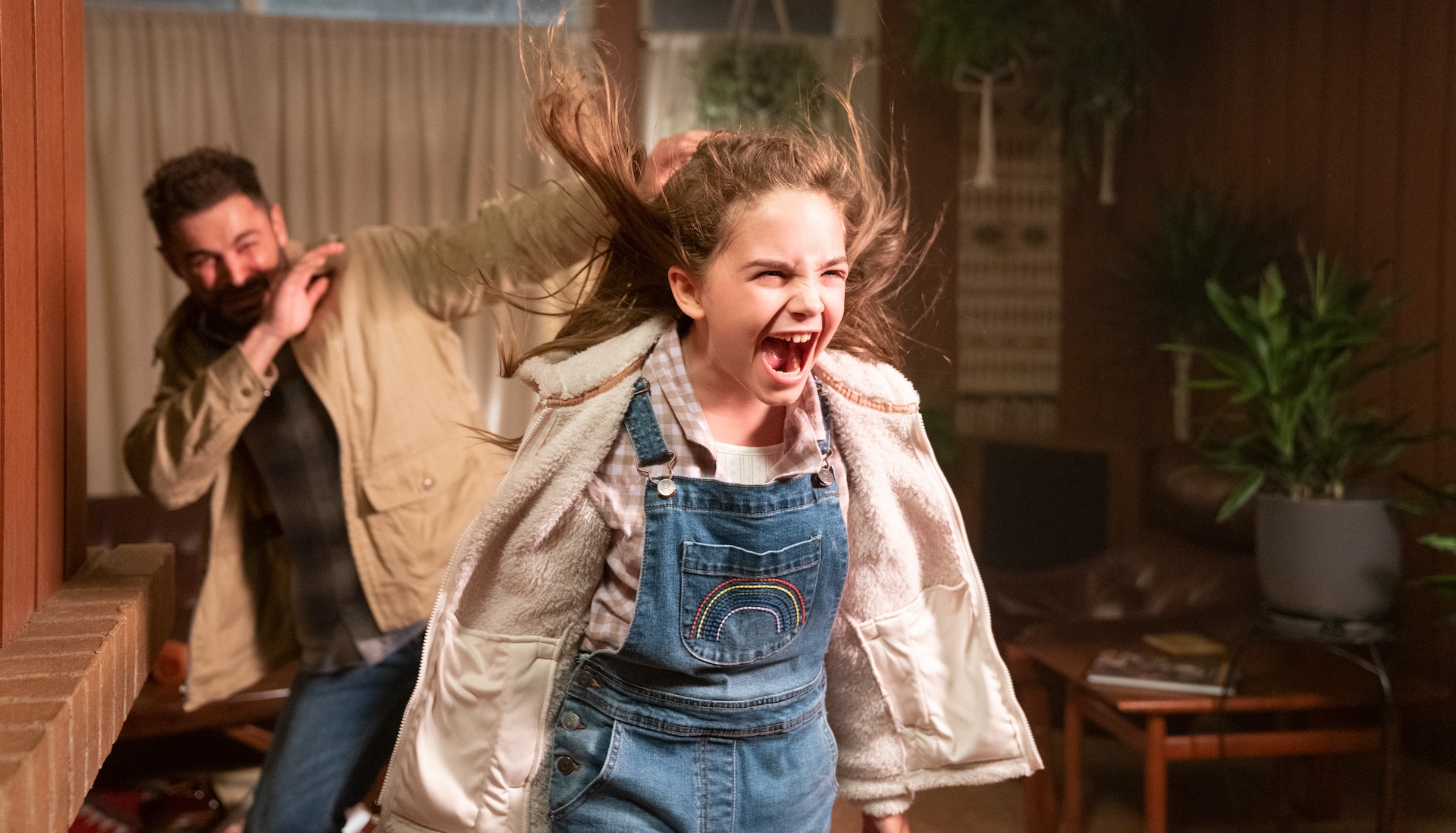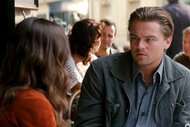Create a free profile to get unlimited access to exclusive videos, sweepstakes, and more!
Stephen King's 'Firestarter': A Look Back at the Classic Horror Book's Legacy
Hollywood can't seem to get enough of one of King's most underrated books.

Stephen King has always been fascinated by people with strange and often dangerous mental gifts. Of the first 10 novels the legendary author published after his 1974 debut, four of them feature a protagonist with some kind of mental superpower, whether it's telekinesis in Carrie, the ability to see ghosts in The Shining, or clairvoyance in The Dead Zone. He's also always had a sweet spot for kids in peril, from Danny Torrance to Jack Sawyer in The Talisman to poor little Tad Trenton in Cujo.
Firestarter, King's 1980 science fiction/horror novel (the 2022 film adaptation is streaming now on Peacock), blends each of these thematic ingredients with one of his other hallmarks, something that crept into things like The Stand and eventually took prominence in The Dead Zone: A distrust of governmental authority figures. Carrie White and Danny Torrance had to face bullies and dangerous parents, and those are scary enough. But when it came to writing pyrokinetic little Charlie McGee, King added the ingredient of deep, paranoid terror that comes from knowing that the very people you were taught would help you if you ever get into trouble, the people in charge of not just your house, but of everything, can't be trusted.
In his previous novels about gifted people, the abilities were apparently latent, things the characters were born with. But in Firestarter, King emphasized the fundamental fear that people in power can't be trusted by creating The Shop, a secretive organization which conducted MK-Ultra style experiments on a group of young adults, including Charlie's eventual parents, Andy and Victoria. When dosed with the mysterious "Lot 6" drug, Andy developed a telepathic persuasion ability, while his future wife developed telekinesis.
Both parents found their gifts had major limitations, but their daughter Charlie had no such apparent restraints. Charlie was a firestarter from the beginning of her life, and that meant The Shop wanted her. In their eyes, Charlie and people like her had the potential to be the greatest weapons the United States government ever wielded, and that meant bringing her in by any means necessary.
King came of age in the 1960s, a prime time for distrust of the U.S. government, so it makes sense that this particular dread plays a prominent role in his work. What's striking about Firestarter is not that he includes it, but just how well he blends it with the child-in-peril horror that he'd already displayed a talent for with other novels. Charlie is, the novel ultimately reveals to us, immensely powerful when she wants to be, but she's also still just a little girl who understands that her mother is gone and her father could go at any minute.
The novel drops us into the middle of a chase, as father and daughter flee across the country from the agents of The Shop, and King uses Andy's point-of-view to show Charlie as a scared little girl, exhausted, overwhelmed, and most importantly, frightened of harming anyone with her gifts. From the beginning, he reminds us that we're following a child who's been given a burden too heavy for her to bear, then shows us what happens when forces beyond her control push her to take that burden against her will.
These forces are spearheaded by John Rainbird, a government fixer and assassin sent by The Shop to bring Charlie in, and over the course of the book he becomes one of King's most quietly terrifying villains. There's an almost pedophilic obsession with Charlie and her gifts that sets in around him over the course of the novel. We get the sense that he doesn't just want to control her, but to conquer her, to prove that he's stronger by ending her life despite her prodigious fire power. As predator and prey bond, though, we see a little of Rainbird's ruthlessness and cold calculation seeping into Charlie, and another layer of terror emerges as it becomes clear that, with a push in the wrong direction, she could be just as terrifying as he is.
Though it hasn't necessarily retained the same level of cultural permeation as Carrie or The Shining or even Cujo, Firestarter remains one of King's best-known early novels, both because of the 1984 film adaptation, and because of its ability to merge these various fears into a story that's satisfyingly gripping, and often leans more into dark superhero science fiction than outright horror. In that way, it's an intriguing early example of King's ability to blend genres, to work beyond straightforward outright terror and infuse other thematic concerns and ideas into his narratives.
It's probably no accident that it's the book which came next after The Dead Zone, another novel about psychic gifts and governmental distrust, and it's definitely no accident that the idea of The Shop has persisted in King's fiction. Whether they're mentioned in things like The Tommyknockers or they simply share thematic links with more recent books like The Institute, this shadowy government group is still very much a boogeyman in the King oeuvre.
More than 40 years after its publication, it's no wonder that Firestarter remains a King book we keep coming back to again and again. It's a fascinating distillation of many of his favorite subjects, a fun exercise in science fiction suspense, and a reminder of the author's versatility even within the horror genre.
Firestarter (2022) is streaming now on Peacock.
Originally published May 12, 2022.



























